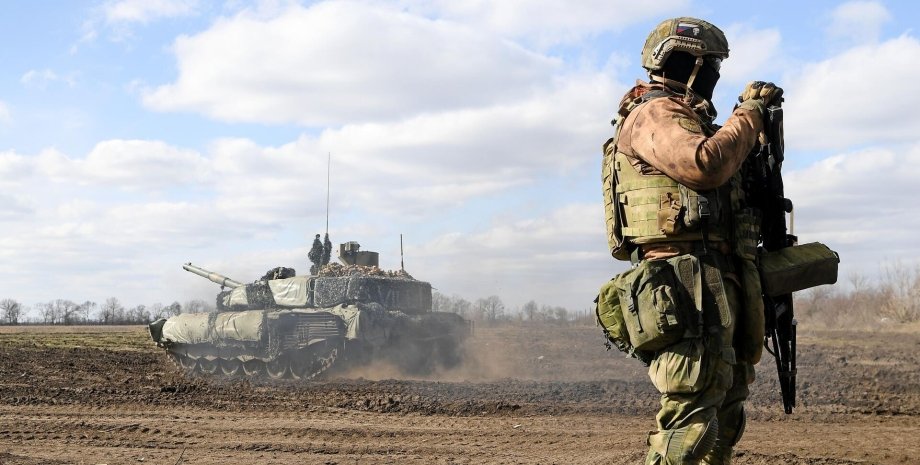
 By Eliza Popova
By Eliza Popova
Recently, many people ask me why the enemy is successfully moving (it comes), and the Armed Forces cannot stop it, although they have come out before? Moreover, no "flash" on any active, offensive actions of the Armed Forces today is not even visible. Although these questions should not be asked, but I will try to answer how in your opinion.
I should not briefly and not resort to different "multi -literary" texts and explanations, then this reason lies in the short phrase - "Changing the entire strategic paradigm of war". Even easier: our opponent clearly identified what he is much stronger than in this war, and on the basis of this assessment, he has developed appropriate changes in his strategy compared to its initial stage.
In particular, directly in the field of planning, organizing and conducting hostilities: together it enables our enemy to provide a "minimization" of assistance from the world community to Ukraine and at the same time - to provide almost allied actions in relation to itself by a number of "not the last in the world" states. Together, all this led to a change in the approaches (strategy) to the Kremlin's war, which was reflected directly, as they say, on the battlefield.
That is, at the operational and tactical levels.
From the planning and conduct of "deaf, shaking blowers" with the promotion of our territory along the main communications, which at the initial stage of the war ended for the enemy, usually by cutting and "terror" of its rear, "collapse" of flanks and ultimate "Groups" at considerable distances (classic example-"Kiev offensive operation", or epic drape of its 1st tank army) to sustainable positional forms In other operating directions in almost all operating areas.
, for some reason, I decided to get rid of successful and effective decentralized methods of warfare, as it was in 2022 and partially in 2023 (well, or, as it is called in Western military art-operational/tactical doctrine of fighting) and returned to banal The postulates of war "from the turn to the turn" according to the canons of the old good Soviet military school.
She even planned, organized and conducted, and "almost live" (by which the demon is unclear), in this canvas a failed offensive in 2023 in one of the operating areas. He now tries, unlike the successful initial stage of the war, to "defend each piece" in the strategic paradigm that the enemy imposed on us. We see the results of these changes now.
I understand everything that the loss of territories is badly reflected in the political image of the authorities and in the socio-psychological sense, the state of the population itself. Especially when it is more or less significant settlements or territories.
But, as it turned out, the rejection of asymmetrical, decentralized forms and methods of organizing and conducting hostilities, where, in fact, the management process is more reminiscent of interaction between actively maneuvering mobile units of different kinds and scale within a single design and purpose Actions through the removal of combat orders in the style of "go there and capture both" or "stand to the end" with "cloudy" tactical or operational goals, led to deeper changes in the structure of the army than simply "deterioration of its methodology of action.
" In fact, the Armed Forces again turned into a "mini-Soviet army" with "rigid control and subordination" in combat management, especially in the link "Battalion-Brigade", with "systematic" and "canonical-Soviet" method of organizing and conducting hostilities, Well, except for "drones". Well, of course, this is all ongoing - "because, you are*being. " As for me, it's a mistake. Example? Avdiivka, Coal, Selidovo and further "on the list" . . .
Classic of the genre - stubborn defense of the settlement, bypassing the flanks, order "stand to the last", almost irreversible cutting by the enemy of the rear communications, breakthrough from half -point. All this is added, let's say, "not quite successful decisions" about the existing structure of the army, both in the functional sphere and simply in organizational and staff. Only one story with territorial defense is worth it. This list can be continued.
The only attempt to get out of this deadlock at the operational level made by our military-political leadership in recent times-the organization and conduct of a "nonlinear" Kursk operation with invasion of the enemy's territory, a little improved the situation (because in fact, this summer could be this summer where it is worse than the enemy breakthrough, the fall of the coal and the village). However, in the general (strategic) sense, this did not change the situation.
The Russian command was able to find strengths and resources "both here and here. " So far. The same change in the strategic paradigm in our favor is needed, first of all, at the expense of systematic changes in the management of the Armed Forces as the foundation of all SUC. Although, of course, other ways, for example, increasing the volume of military and technical assistance from the Allies will not be interfered with, to put it mildly.
I am surprised that the idea that the so -called "wars of a new type" is not conducted on the canons and templates "Operations of Bagration" in 1944, it is still incomprehensible. We are still "rescued" by the fact that the Kremlin regime was largely a simulat and not as "resource immense" in certain areas as it seemed to him. Therefore, this continuous pressure in the style of "Diash Berlin" is actually giving him difficult. And the further, the degree of difficulty for him increases.










All rights reserved IN-Ukraine.info - 2022